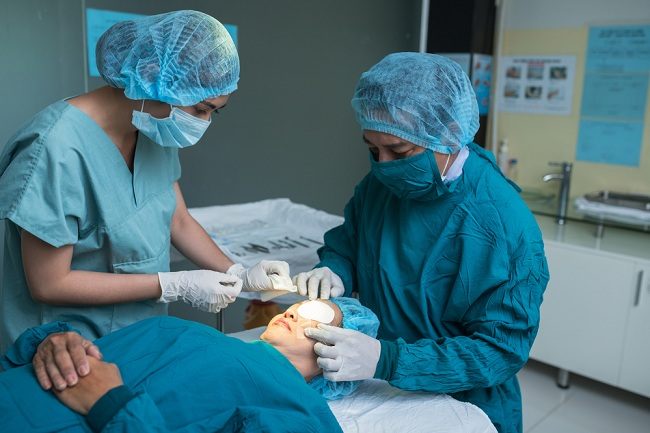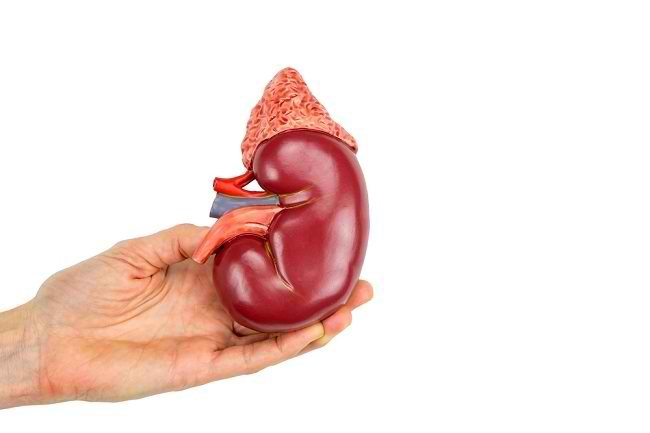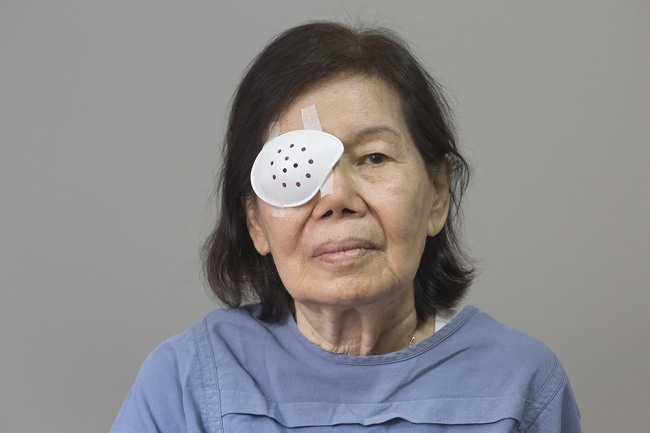Minocycline is an antibiotic drug to treat diseases caused by bacterial infections, such as gonorrhea, syphilis, or non-gonorrhea urethritis. In addition, minocycline is also used to treat acne or periodontitis.
Minocycline works by inhibiting the formation of proteins that are essential for bacterial growth. That way, the bacteria will die and the infection can be resolved.

In dealing with acne, minocycline works by killing bacteria that infect pores and reducing oil production which can increase the risk of acne. This drug should not be used carelessly and must be according to a doctor's prescription.
Minocycline Trademark: Nomika, Periocline
What is Minocycline
| group | Prescription drugs |
| Category | Tetracycline antibiotics |
| Benefit | Treats bacterial infections, including gonorrhea, syphilis, non-gonorrheal urethritis, acne, or periodontitis |
| Used by | Adults and children 8 years old |
| Minocycline for pregnant and lactating women | Category D: There is positive evidence of risks to the human fetus, but the benefits may outweigh the risks, for example in dealing with life-threatening situations. Minocycline can be absorbed into breast milk. If you are breastfeeding, do not use this medicine without consulting your doctor first. |
| Drug form | Capsules and injections |
Precautions Before Using Minocycline
There are several things you should pay attention to before using minocycline, including:
- Tell your doctor about any allergies you have. Minocycline should not be given to patients who are allergic to this drug or to the tetracycline class of drugs.
- Tell your doctor if you have or have had liver disease, kidney disease, asthma, difficulty swallowing, increased pressure in the brain (intracranial), or lupus.
- Avoid direct sunlight and always use sunscreen when you are outdoors, because minocycline can make your skin more sensitive to sun exposure.
- Talk to your doctor about using minocycline in children under 8 years of age, because this drug can increase the risk of side effects such as permanent tooth discoloration.
- Do not drive a vehicle or do activities that require alertness after taking minocycline, as this medicine can cause dizziness.
- Tell your doctor if you plan to vaccinate with live vaccines, while taking minocycline, as this medicine can decrease the effectiveness of the vaccine.
- Tell your doctor if you are taking certain medications, supplements, or herbal products.
- Tell your doctor if you are pregnant, breastfeeding, or planning a pregnancy. Use effective contraception during treatment with minocycline.
- Report to your doctor if you have an allergic drug reaction, serious side effects, or overdose after taking minocycline.
Dosage and Rules of Use Minocycline
The dose of minocycline given by the doctor depends on the condition to be treated, age, and the dosage form of the drug. Here is the explanation:
Purpose: Overcoming bacterial infections
Shape: Capsule
- Mature: Initial dose of 200 mg, followed by 100 mg, every 12 hours. The maximum dose is 400 mg per day.
- Childage 8 years: The initial dose is 4 mg/kg, followed by 2 mg/kg, every 12 hours. The maximum dose is 200 mg per day.
Purpose: Overcoming acne
Shape: Capsule
- Mature: 50 mg, 2 times a day or 100 mg, once a day.
Purpose: Overcoming syphilis
Shape: Capsule
- Mature: Initial dose of 200 mg, followed by 100 mg, every 12 hours, for 10-15 days.
Purpose: Overcoming gonorrhea
Shape: Capsule
- Mature: : The initial dose is 200 mg, followed by 100 mg, every 12 hours, for 4 days. Treatment will be re-evaluated within 2–3 days after completion of therapy.
Purpose: Treating non-gonorrhea urethritis
Shape: Capsule
- Mature: 100 mg, every 12 hours, for 7 days.
In addition, minocycline can also be used in the treatment of periodontitis. This drug is done by inserting the drug into the tooth or gum that hurts, as much as 1 mg. For injectable dosage forms, the dosage will be adjusted according to the patient's condition.
How to Use Minocycline Correctly
Minocycline injection will be directly given by a doctor or medical officer under the supervision of a doctor. Minocycline capsules can be taken before or after meals.
If you forget to take minocycline, take this medicine immediately if it is not close to the schedule for taking the next drug. If it is approaching, ignore the missed dose and do not double the dose.
Follow the dose and duration of treatment prescribed by the doctor. Do not increase the dose, reduce the dose, or stop treatment without consulting your doctor first.
Take minocycline capsules 2-3 hours before or after consuming products containing aluminum, calcium, iron, zinc, magnesium, antacids, quinapril, or dairy products.
Take minocycline capsules whole. Do not crush, chew, or split this medication as this may affect the effectiveness of the drug.
Store minocycline in a place away from direct sunlight. Keep this medicine out of reach of children.
Minocycline Interaction with Other Drugs
The following are some of the effects of interactions that may occur when minocycline is used with certain drugs:
- Decreased absorption of minocycline when used with supplements zinc, iron, magnesium, or antacid medications
- Increased risk of occurrence pseudotumor cerebri when used with vitamin A or retinoid class drugs, such as isotretinoin
- Decreased effectiveness of live vaccines, such as BCG vaccine or measles vaccine
- Increased risk of kidney damage if used with methoxyflurane or diuretic drugs
- Increased toxic effects of ergot alkaloid drugs, such as ergotamine
- Decreased effectiveness of penicillin
- Decreased effectiveness of birth control pills
Minocycline Side Effects and Dangers
Tell your doctor or medical officer if the following side effects do not subside or get worse:
- Dizziness or feeling floating
- Tired and limp
- Nausea or vomiting
- Diarrhea
In addition, report to your doctor immediately if you experience an allergic reaction to the drug or experience more serious side effects, such as:
- Discoloration of the gums, tongue, lips, or skin turning blue or gray
- Hearing loss, such as ringing in the ears
- Pain, swelling, or stiffness, joints
- Difficulty swallowing or pain when swallowing
- Impaired kidney function which can be characterized by symptoms such as infrequent urination or very little urine
- Jaundice, very severe stomach pain, or dark urine
- Severe headache, blurred vision, or sudden blindness









